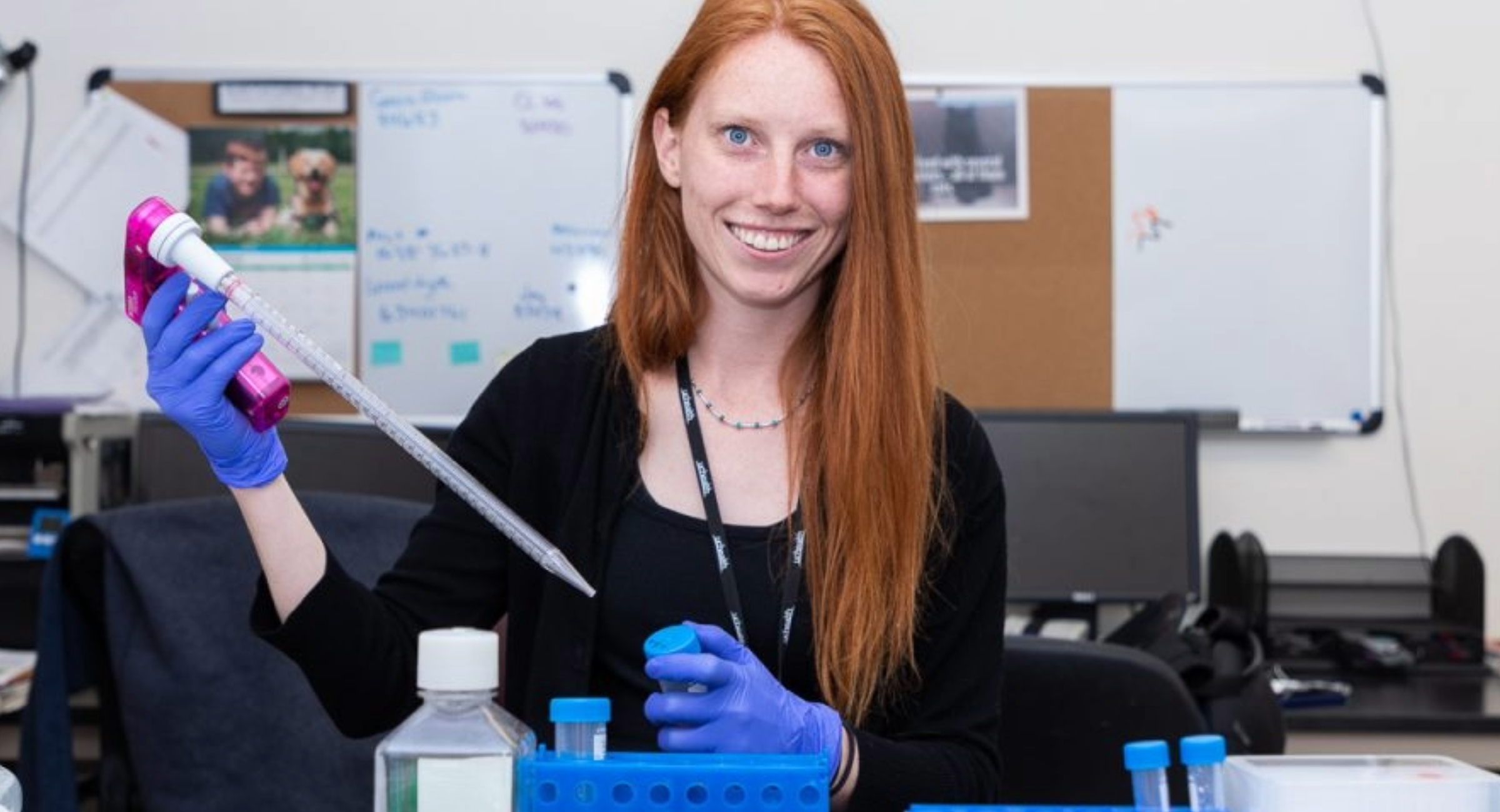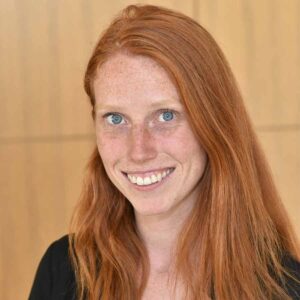As an MD/PhD student, Hertz Fellow Jacqueline Turner is combining a passion for basic research with a desire to help cancer patients get the best treatment possible.
Jackie Turner was an undergraduate tinkering in the lab on a quiet Friday when she stumbled across an unusual genetic signature — the fusion of two genes — in a patient’s tumor sample. She didn’t know it yet, but that discovery would change the trajectory of her life.
The patient she was studying had a rare and aggressive melanoma that had continued to grow, even after multiple courses of treatment. He was planning to enter hospice care, and he was considering having his cancer-ridden leg amputated as a last-ditch attempt to control his pain. But Turner’s discovery revealed a gene fusion that had never before been reported in this rare melanoma subtype — and it pointed toward an experimental drug that could work. He quickly joined a clinical trial and saw immediate results. The experimental treatment kept him alive for more than two years.
“He was a dad with two young kids,” Turner says. “He didn’t just live longer — he lived better. That changed how I saw science. I realized research could actually give someone their life back.”
That moment of impact ignited Turner’s commitment to translational science. Now a Hertz Fellow and a graduating MD/PhD student at the University of Colorado — planning to start her next steps in training as a physician-scientist in oncology at the Mayo Clinic later this year — she is tackling some of the most complex challenges in cancer immunology.
The Freedom to Study T Cells
At the outset of her MD/PhD work, Turner knew that she wanted to continue studying cancer. She was especially fascinated by the interplay between immunology and cancer, and wondering how new therapies could help the body’s built-in defense systems fight tumor cells.
She joined the lab of Raul Torres, an expert on the role of the immune system’s B cells on health and disease. But Turner wanted to focus on T cells — the immune system’s frontline soldiers — and their ability to recognize cancers. She was intrigued by the success of cellular therapies, in which patients’ own immune cells are engineered or reprogrammed to better attack tumors. Yet, these types of therapies are often expensive, available to a limited number of patients, and they remain inaccessible to a large subset of people. Jackie wanted to contribute in a new way to this growing movement, with a focus on using the body’s existing machinery to fight cancer.
This is where the Hertz Fellowship made all the difference, Turner says. The flexible funding allowed her to launch a line of T cell research that her lab would not have otherwise been able to support through its own, B cell-focused grants.
T cells, she learned over the course of her research, are metabolically demanding. When they encounter cancer cells, the act of killing those cells draws heavily on their energy reserves. Turner hypothesized that a T cell’s metabolic capacity — its ability to flexibly produce and use energy — could be the key to fine-tuning its cancer-fighting potential. Indeed, her graduate work uncovered a previously unknown metabolic switch that turns down T cell activity by dampening the cell’s energy capacity. This new discovery — an immune program linked to metabolism — could lead to effective immunotherapies that boost T cell activity against cancer, she hopes.
Making Treatments Accessible
Turner’s ambitions go beyond designing better therapies — she also wants them to reach more people. A formative internship at the Gates Foundation revealed a stark contrast: While cutting-edge treatments may be available in U.S. hospitals, they’re out of reach for much of the world.
“In the U.S., we think of transplants and gene therapies as routine,” she says. “But for most of the world, these aren’t even options. That experience made me ask: How can I build science that’s not just elegant, but accessible?”
That question is shaping the future of her research. One of her current interests involves harnessing mitochondria — tiny powerhouses found in living cells — to boost immune cell metabolism. Mitochondria are known to jump between cells during some transfusion procedures. Turner thinks that these organelles could enhance immune responses in certain cancer patients — and wouldn’t need technology beyond existing blood banks, which are widely available and low-cost.
“The goal is to help the body do what it was already designed to do — to give it the fuel and tools it needs to fight cancer more effectively,” she says.
Merging the Clinical and the Scientific
At the Mayo Clinic, Turner is already assembling a research team and continuing her collaborations with her mentors in Colorado. She’s joining a multi-institutional effort between the two institutions, with a grant from the National Cancer Institute. At the same time, as she hones her clinical skills as a doctor, she’ll continue spending time in the lab.
“My heart lies in the lab,” she says. “I love asking questions, and the clinical exposure sharpens those questions and makes them more applicable.”
Despite the challenges of balancing long hours, high expectations and the emotional weight of oncology, Turner stays grounded by focusing on sustainability — of her projects, her energy and her joy. “Science is full of failure,” she says with a smile. “You have to learn to find value in that. You gain so much more when you learn to derive value out of your failures.”
Turner also speaks passionately about the power of community, and she has already donated both time and money back to the Hertz Foundation. Notably, Hertz Fellows were among those who raised money for Jackie and her family when they were affected by Colorado wildfires in 2021.
“Hertz supported me in some of the hardest times in my life, not just professionally, but personally. That’s why I want to give back — whether that’s through mentoring, serving on committees or supporting the foundation however I can.”


